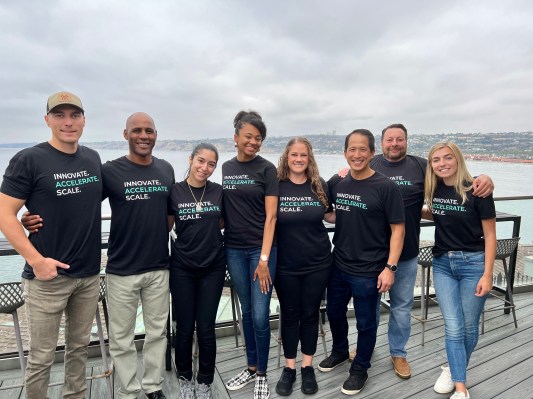Venture firm Nex Cubed announced today the launch of the HBCU (historically Black college and university) Founders Fund, with a $5 million investment from Costco Wholesale, which now joins as an anchor investor. The fund, which is a $40 million accelerator, seeks to foster and invest in startups where at least one founder is an HBCU student, alumni or faculty member.
Before the fund, Nex Cubed launched a pre-accelerator program at various HBCUs to help aspiring entrepreneurs affiliated with the institutions find resources to scale their startups. After the program’s success, the firm spun it out as its own 501(c), attracting the likes of AT&T, Mastercard and Verizon as partners to help the program expand to more than 70 HBCUs.
“We still hadn’t addressed the fact of funding, and that was still a gap that needed to be filled,” Nex Cubed CEO Marlon Evans told TechCrunch. “That’s what led us to launch this fund where we hope to serve as a catalyst for other investors to recognize that there’s a tremendous amount of talent at HBCUs.”
Evans said the limited target partners for this fund are corporations and foundations and says many have sought to commit as an extension of their previous diversity, equity and inclusion promises. From this, the HBCU Founders Fund also hopes to tap the talent and executive workforce of its LPs to serve as mentors and advisors to those within their upcoming portfolio.
“We are proud to partner with the HBCU Founders Fund to help foster a more inclusive venture capital environment and accelerate Black entrepreneurship,” Richard Galanti, executive vice president and CFO of Costco Wholesale, told TechCrunch.
HBCUs could use a little more love regarding the incubation of talent and investment potential. There are more than 100 in the U.S., and many lack the same infrastructure or educational and professional opportunities associated with predominantly white institutions (PWIs). HBCUs are responsible for a quarter of all African American STEM graduates, with North Carolina A&T State University, Howard and Spelman College as some of the top STEM-graduating universities. Their endowments are paltry compared to legacy PWIs, and that has an impact on students.
“I live in Silicon Valley, I went to Stanford, if I walk outside my door and throw a rock, I probably hit a VC and three startup founders,” Evans said, adding that this same environment doesn’t exist at most HBCUs. Still, “the talent is there,” he continued. He hopes this fund provides access and resources, strategic support and financial capital that engages with HBCU talent, helps them foster and launch businesses and that helps the Black community, socially and economically.
Applications are now open for those wishing to apply to the HBCU Founders Fund. Evans expects the fund to close by the end of the year and plans to deploy the capital through cohorts, with the idea to invest in about 20 companies per year across two cohorts — one in the spring and one in the fall. With that, he expects most of the capital to be deployed within four years, with reserves for follow-on funding.
More efforts such as this may help swing the percentage of capital allocated to Black founders. Crunchbase data found that Black founders only received around 1% of all venture capital funding last year, which is on par with what they have always received. Evans believes that LPs need to understand better the benefits of funding diverse entrepreneurs and hopes that the HBCU Founders Fund will show what happens when opportunities meet equitable deal flow.
The fund posed a solution quite contrary to what usually happens within venture. Instead of telling people to switch schools, to move locations, to do this and to do that, Nex Cubed went to them, disrupted their networks, and broke down their own access barriers to find what’s next. Evans said he hopes to donate a percentage of the fund’s carry back to the pre-accelerator to continue fostering, supporting and thus creating a pipeline of talent.
It’s a classic example of when one does well, it will create opportunities for others. “The innovators of tomorrow are coming from these communities,” Evans said about HBCUs. “We’re investing in the next generation of founders.”
